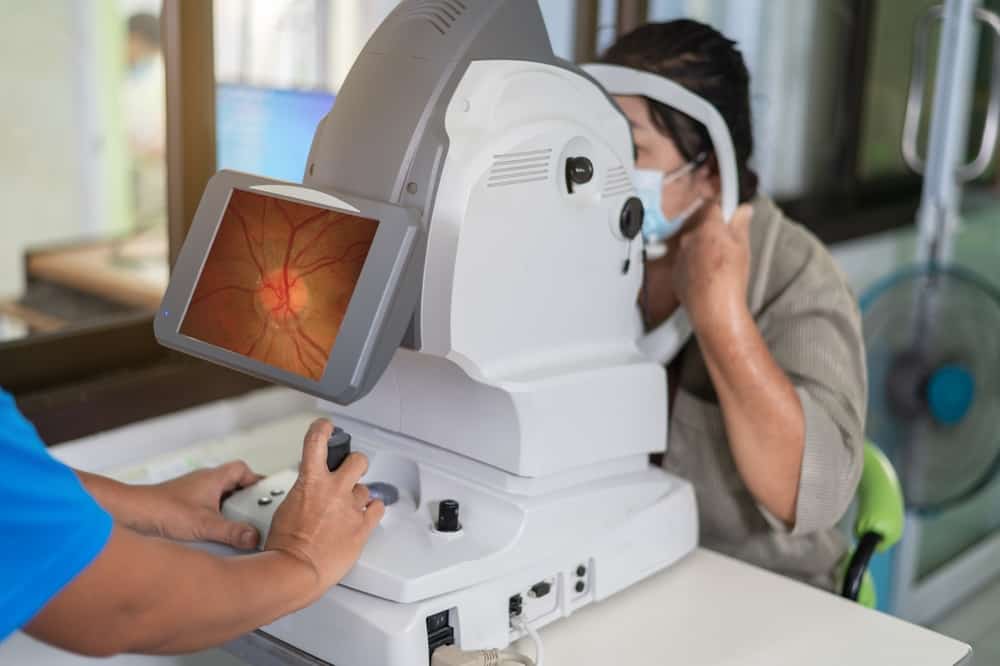All Categories
Featured
Table of Contents
Eye wellness is a crucial element of general health, and normal eye tests play an essential function in maintaining excellent vision throughout life. Each age group has particular demands and dangers associated with eye health, making it important to follow tailored suggestions for eye evaluations. Right here's a comprehensive review of how frequently eye exams should be arranged for various age.
After the first examination, children should have a 2nd eye exam around age 3, when they can much better take part in testing and analysis. If no vision troubles are recognized, the next exam is suggested prior to beginning school, usually around age 5. Early discovery of problems can lead to timely intervention and support healthy aesthetic development.
Moms and dads should look for indicators of vision troubles, such as difficulty reading the blackboard, squinting, or complaining of frustrations. It's vital to schedule an eye examination quickly if any of these signs emerge. Kids who participate in sports may profit from yearly eye tests to make certain optimum aesthetic performance and safety during activities.
![]()
Young people usually experience electronic eye pressure because of substantial screen time, resulting in signs like dryness and discomfort. Looking for an eye examination is important if you notice these symptoms. An eye treatment expert can provide options, such as computer glasses or lifestyle modifications, to reduce stress.
For people with wellness conditions like diabetes or high blood stress, more frequent tests may be needed. Normal surveillance is necessary for very early detection and monitoring of prospective problems that can influence vision.
Seniors may also experience adjustments in their aesthetic assumption, such as trouble seeing in low light or differentiating colors. Regular eye exams allow for timely intervention and help maintain independence and top quality of life.
Babies (0-2 Years)
Infants undertake significant aesthetic development in their early years, making early eye exams vital. The American Academy of Pediatrics recommends that infants have their first eye examination at concerning six months of age. This initial visit aids recognize any possible vision troubles, such as strabismus (gone across eyes) or genetic cataracts, which can impact development otherwise addressed early.After the first examination, children should have a 2nd eye exam around age 3, when they can much better take part in testing and analysis. If no vision troubles are recognized, the next exam is suggested prior to beginning school, usually around age 5. Early discovery of problems can lead to timely intervention and support healthy aesthetic development.
Children (3-18 Years)
For school-aged youngsters, routine eye examinations are vital for both scholastic success and general wellness. Youngsters need to have their eyes checked each to 2 years, depending upon their individual requirements. Schools often carry out vision screenings, however these do not change thorough eye examinations by an eye care expert.Moms and dads should look for indicators of vision troubles, such as difficulty reading the blackboard, squinting, or complaining of frustrations. It's vital to schedule an eye examination quickly if any of these signs emerge. Kids who participate in sports may profit from yearly eye tests to make certain optimum aesthetic performance and safety during activities.
Young Person (19-39 Years)
Throughout young adulthood, several individuals take pleasure in fairly stable vision, yet that does not indicate eye treatment can be ignored. Young grownups must set up thorough eye exams every 2 years. Those who wear contact lenses or have a family background of eye illness must consider yearly examinations.
Young people usually experience electronic eye pressure because of substantial screen time, resulting in signs like dryness and discomfort. Looking for an eye examination is important if you notice these symptoms. An eye treatment expert can provide options, such as computer glasses or lifestyle modifications, to reduce stress.
Adults (40-64 Years)
As people enter their 40s, changes in vision can come to be much more obvious, especially presbyopia, a condition that makes it testing to concentrate on close objects. Grownups in this age group ought to set up eye exams each to two years. This is also the age when numerous eye conditions, such as glaucoma and diabetic person retinopathy, can begin to create.For people with wellness conditions like diabetes or high blood stress, more frequent tests may be needed. Normal surveillance is necessary for very early detection and monitoring of prospective problems that can influence vision.
Elders (65 Years and Older)
Senior citizens go to an enhanced risk for various eye illness, consisting of cataracts, age-related macular degeneration, and glaucoma. It's suggested that individuals matured 65 and older have an eye exam at the very least when a year. Early discovery of these problems is vital, as several can be treated successfully if captured early.Seniors may also experience adjustments in their aesthetic assumption, such as trouble seeing in low light or differentiating colors. Regular eye exams allow for timely intervention and help maintain independence and top quality of life.
Final thought.
Focusing on eye treatment and normal check-ups guarantees that individuals can appreciate clear vision and a much better top quality of life, making eye health an important element of long-lasting health. Routine assessments with an eye treatment specialist will pave the means for healthier eyes and a brighter future.Table of Contents
Latest Posts
Boost Your Home's Outside with Weathercraft's Home siding Solutions
Published May 26, 25
1 min read
Discover WyHy Federal Credit Union – Trusted Financial Solutions for Your Financial Success
Published May 24, 25
1 min read
Discover Affordable Auto Repairs with Montclare’s Exclusive Service Specials
Published May 23, 25
1 min read
More
Latest Posts
Boost Your Home's Outside with Weathercraft's Home siding Solutions
Published May 26, 25
1 min read
Discover WyHy Federal Credit Union – Trusted Financial Solutions for Your Financial Success
Published May 24, 25
1 min read
Discover Affordable Auto Repairs with Montclare’s Exclusive Service Specials
Published May 23, 25
1 min read